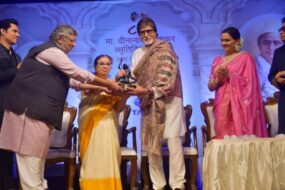
The very purpose of art is to stimulate, challenge set notions and raise awareness. Punjab is in the grip of a serious public health crisis that requires immediate national attention, says RITU PANDEY

Just a few days left to its release, the fate of Udta Punjab, Abhishek Chaubey’s multi-starrer that deals with the state’s drug problem hangs in a balance. While the Censor Board has suggested an adult certification, change of the title and 89 cuts (for scenes with use of abusive language and drug abuse), the producers are chalking out the legal plan. One can only marvel at the relevance of an “adult” certificate if the film still needs not one, two, or three, but 89 cuts!
But thanks to the PR team’s smart overplaying of the word“ban”, the film isn’t any short of pre-release publicity. It’s public knowledge that the Censor Board is the country’s film certification authority. It has little power to ban films on its own. However, spreading the “ban”word about a film is the easiest ploy in a makers’ diary to garner some free and fast publicity. Whether or not the film makes it to the theatre eventually, it does manage to become a talking point. If it gets a release, that curiosity naturally translates into box-office success. So this weekend when #WeSupportUdtaPunjab trended on Twitter, it was hardly surprising to find the film’s co-producer Ekta Kapoor among those tweeting against the “ban.” “A movie which has lot of truths & facts of “Punjab” & today youth ..& censer board trying to ban this movie SHAME,” tweeted Kapoor. A day later, its second producer Anurag Kashyap was chiding people to “abstain from spreading a BAN rumour.” Now isn’t that a wonderfully well-coordinated publicity strategy by the two moneybags?
Don’t Miss: Censor Board officials disrupt Sunil Shanbag’s play in Delhi
Of course that doesn’t mean any less troubles for the movie. Especially when they have a political origin. Drug abuse has emerged as a major issue in the 2017 Punjab Assembly elections with prime contender AAP and Congress both openly taking on the Badal government for the spread of the menace in the state. AAP is using songs, plays and other folk forms to draw voter attention to the SAD, BJP, Congress politico-police nexus under whose watchful eyes the drug mafia has thrived while the youth of Punjab lies wasted. This does not bode well for the ruling SAD-BJP combine, especially when anti-incumbency is high and pre-poll surveys predict better chances for AAP. The ruling SAD-BJP combine obviously wants all discussions on the matter stalled immediately. Explains why the first voices asking for a ban on the movie that showed the state in a bad light were raised by the ruling party and the acquiescent Censor Board quickly conceded with whatever best it could do.
Don’t Miss: The New York Times under fire for calling Lata Mangeshkar ‘a so-called singer’
But should discussions on social evils be stopped just because they show the society and its people in a bad light? By that argument, no problem will be resolved. Women’s safety and rights today have become a national priority only because at some point people felt the need to talk about them rather than brushing them under the carpet in the name of national shame. Silence is no solution to social problems. It only prolongs problems. And what better than art and mass media taking up burning contemporary issues, especially with the elections round the corner.
The very purpose of art is to stimulate, challenge set notions and raise awareness. Punjab is in the grip of a serious public health crisis that requires immediate national attention. If a film is being made about it, it’s hardly a secret. But more awareness needs to be raised to look for some widespread solutions. The civil society at large needs to get involved. Such large-scale involvement can only take place if drug abuse and the entire chain of activities are openly talked about. And this should’ve long been done by the state government itself. On the contrary, the political class is out trying to stall a public effort in the direction. Let’s hope better sense prevails over the FCAT and it refuses to give into the political agenda. For the sake of art and public health.









